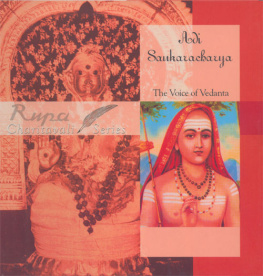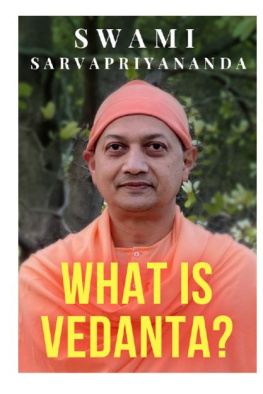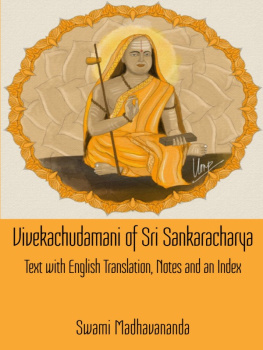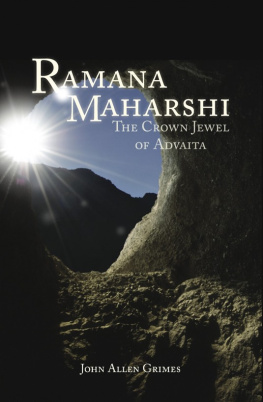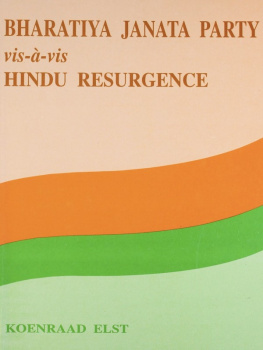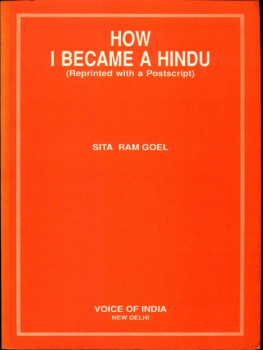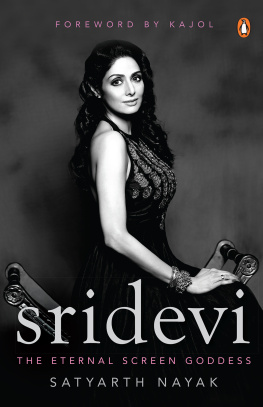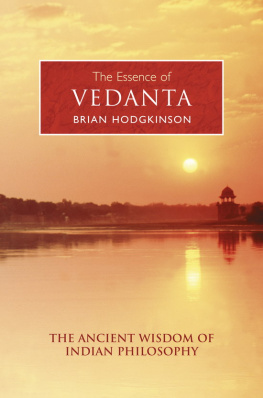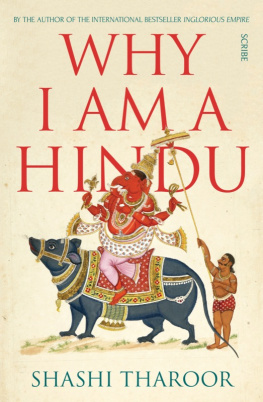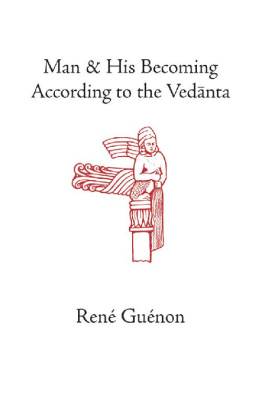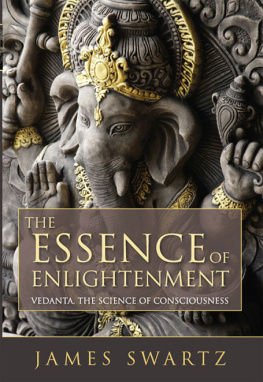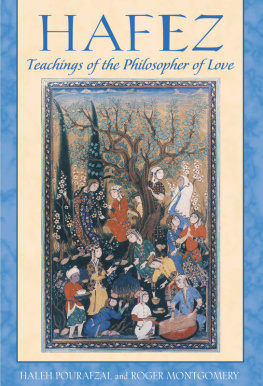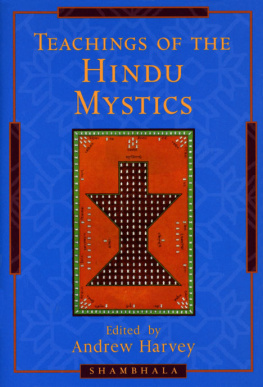Adi sankaracharya
THE VOICE OF VEDANTA
Copyright Rupa & Co 2003
Text 2003 Sridevi Rao
Published in 2003 by
7/16, Ansari Road, Daryaganj
New Delhi 110 002
Sales Centres:
Allahabad Bangalore Chandigarh Chennai
Dehradun Hyderabad Jaipur Kathmandu
Kolkata Ludhiana Mumbai Pune
All rights reserved.
No part of this publication may be reproduced, stored in a retrieval system, or transmitted in any form or by any means, electronic, mechanical, photocopying, recording otherwise, without the prior permission of the publishers. Photographs courtesy: N. R. Ramachandran, Shankara Vidya Kendra, New Delhi; Ajay Khullar
Cover & Book Design by
Arrt Creations
45 Nehru Apts, Kalkaji,
New Delhi 110 019
Printed in India by
Gopsons Papers Ltd
A-14 Sector 60
Noida 201 301
CONTENTS
CHAPTER ONE
The Voice Of Hindusim
Adi Sankaracharya is the chief architect of the philosophical system Vedanta, that has come to be recognised as the pre-eminent voice of Indian philosophy. At once mystical and intellectual, sublime and scholarly, covering the entire range of human experience from the empirical to the transcendental, Vedanta is one of the most complete and comprehensive philosophical systems in the world today.
This great tradition, whose genesis lay in the mystical vision of the Upanishadic seers and sages of yore, was but a feeble voice amid the clamour of the myriad religious groups that existed when Sankara was born.
Sankara lived in an age when the Vedic tradition was in decline, and when the great spiritual heritage of India the Vedas and Upanishads, were being interpreted variously to suit the divergent beliefs of a staggering variety of sects and cults. All these groups claimed allegiance to the Vedas, though their philosophies and practices ranged from orthodox ritualism to radical atheism, from tantric practices that included human sacrifice to the individual practices of puja, dana, vrata, utsava and yatra. This was, perhaps, inevitable because the scriptures themselves seemed to posit quite contradictory views.
Adi Sankara's radical and original reinterpretation of the scriptures, in the light of his own direct realisation of ultimate reality, succeeded in completely refurbishing them and reinstating their beauty and elegance. It also resulted in a system that unified the various Vedic sects and cults into a single stream with a common philosophical matrix. In time, this unification would evolve into the modern, homogeneous Hindu identity.
Besides refurbishing the scriptures, Sankara embarked on a highly successful mission of cleansing Vedic religious practices of their ritualistic excesses, and turning people's minds towards the core teaching of Vedanta, which is Advaita or non-dualism.
By this time, Buddhism and Jainism, which were the radical, heterodox religions that had held sway for almost a millennium, were already on the wane in India. Sankara's missionary zeal recharged and reinvigorated the Vedic religion, and brought it back to the centre-stage. Sankara is therefore, regarded as the prime propagator of the Hindu revival movement, or renaissance of Hinduism in the country.
Sankara was a self-realised sage, brilliant philosopher and prodigious scholar; he was also, by most accounts, an extraordinary debater, a remarkable strategist, a compassionate teacher and a loving son. A charismatic figure, he was a man of the people.
It is a matter of some irony that this vibrant figure in India's spiritual heritage is also its most elusive.


Very little is known of the actual events of Sankara's life. He is known as Adi Sankaracharya or the original Sankaracharya, in order to distinguish him from his spiritual descendants who bear the same name. The biographies that were written in the couple of centuries after his death were, at best, hagiographies, with little reliable information regarding his life. For instance, it is believed that he took up sanyasa at the age of eight, completed his major works by the time he was sixteen and died at the age of thirty-two. Fact? One does not know. Plausible? Maybe. Even the literary works attributed to him are of questionable authorship, because it was the practice of those times for disciples to attribute their works to their guru out of a sense of reverence. Legend and fact therefore get inextricably intertwined in the life history of Sankara. For instance, stories of miraculous powers, such as his entering the body of a dead king, and improbable meetings with mythological figures, such as the meetings with the rishi Vyasa, abound in the traditional accounts of his life. Some of them contradict the very essence of his teachings.
Nevertheless, even without the legends, Sankara's life would stand out as one of stupendous achievement. His is a story with few parallels in the history of world philosophy.
CHAPTER TWO
The Child Prodigy
Sankara was born sometime in the eighth century, in a village on the banks of the river Puma. The village (present day Kaladi), on the banks of what is now known as river Periyar in Kerala, South India subsisted on agriculture, and had a small population made up of different social classes.
His parents were Sivaguru and Aryamba, a prosperous, middle-aged Nambudiri Brahmin couple who had been childless for a long time. The birth of the boy was not only a joyous occasion for the couple, but also a blessed one.
Legends relate that Aryamba had performed severe penance to Lord Siva for the boon of a child. One day, the Lord appeared to her in a vision, and expressing pleasure at her deep faith and devotion to him, promised her that he would himself incarnate in the form of her firstborn. It is interesting to note that Sankara's disciples, who referred to Sankara reverently as Bhagavat or Bhagavatpada, never spoke of him as being an incarnation of Siva.
Just before the birth of the child, the Lord appeared once again before the couple and asked them to choose between a child who would live a short but extraordinary life and one who would be dull, but live long and be a dutiful and devoted son to them. The couple chose the former.

